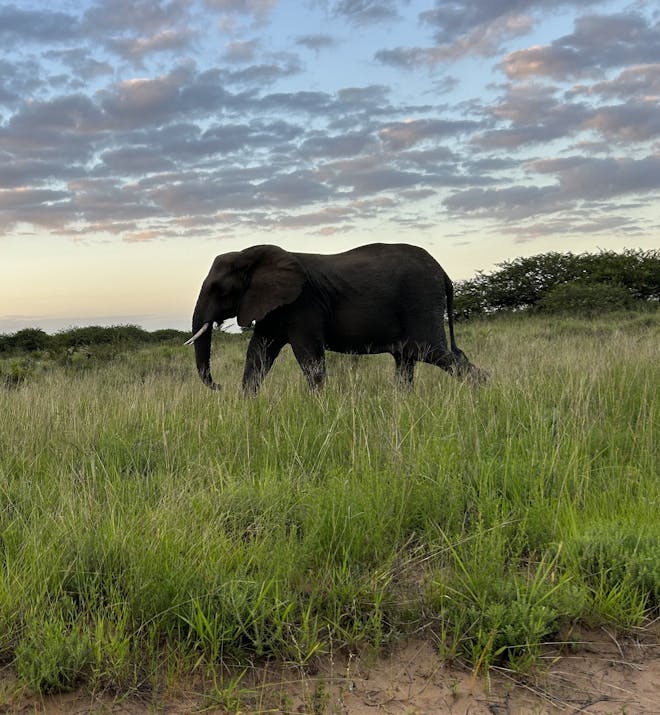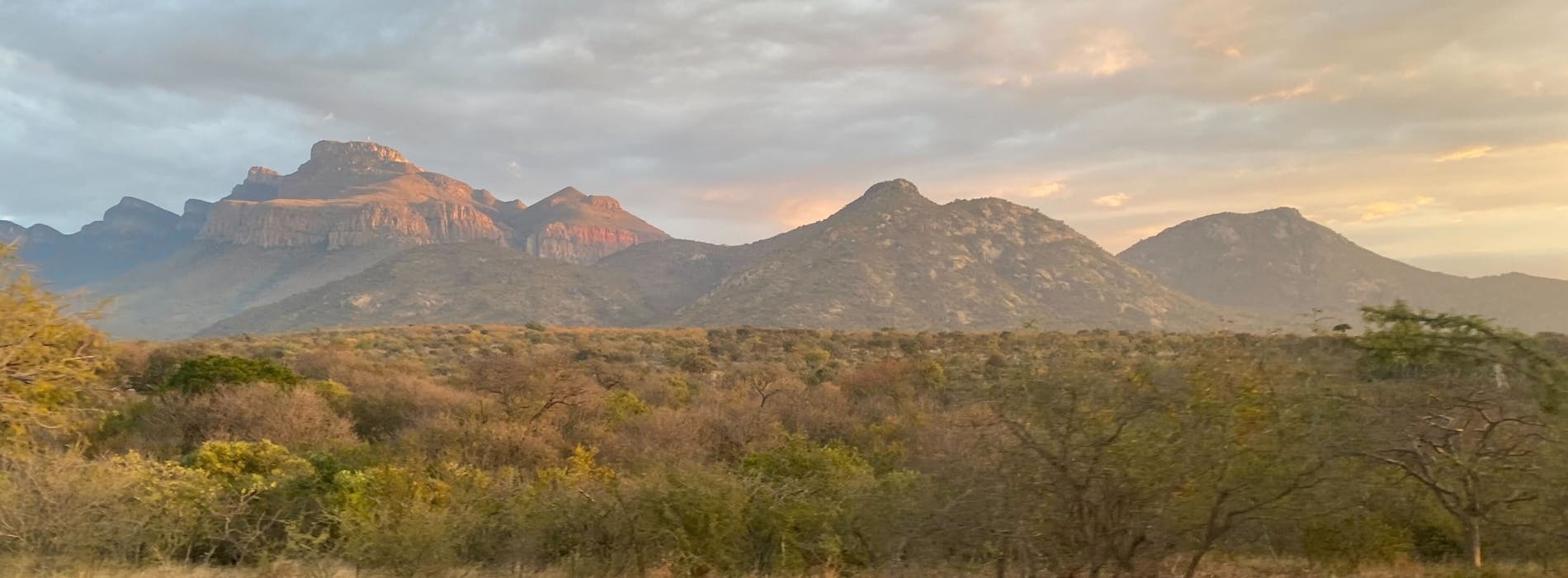
I work full-time, and every year I try to take a month off to travel somewhere different. However, I have never been to Africa and I wanted to explore something new. I enjoy being active and spending time outdoors, so I was looking for an opportunity to see animals in their natural habitat instead of a sanctuary.
After consulting with the ACE team, they suggested that I choose the Phinda Wildlife Research Project. This project offers a hands-on and behind-the-scenes look at conservation, which is a more insightful way to experience wildlife than being a guest on a safari.
It also provides an opportunity to understand how this incredible wildlife is managed and protected and the work that goes on around it.
Every day at Phinda, we would start around 5:30am. Once we got into the vehicle, the staff would brief us on the day's purpose and the tasks that we would be doing on the drive. We would also stop and record data for any priority wildlife, such as rhinos, along the way. Once we had completed our main objective, we would move on to other tasks. This allowed us to cover huge areas of the reserve.
A big part of my job here was to track a particular cheetah that was recently released and search for a pangolin that had moved burrow.
We would return to the camp around 10:00am and spend a few hours relaxing before going out again around 4:30pm. We would then return to camp around sunset or just after. Our days were varied, which made them very exciting!
Phinda’s wildlife is incredible, in just a week I saw: rhinos, rhino calves, leopards, cheetahs, hippos, elephants, lions, lots of different birds, crocodiles, buffalo, wildebeest, impalas, nyala, hyenas, zebra, giraffe, waterbuck, warthogs, bush pig, genet, tortoise, monkeys, and baboons!
There were so many more that I can't even remember them all. We even saw the elusive pangolin on camera traps, and I saw four of the big five on my first day!
I have two amazing memories from my time at Phinda. On my first evening, we tracked elephants and saw so many of them. The male elephants were fighting in the bushes, and it was fascinating to see how they interacted with each other and how this behaviour affected the herd.
On our way back to the camp, after watching the elephants, we spotted a leopard!
Seeing a leopard is a rare sight, so we stopped to take a closer look. Leopards are usually skittish, but it stopped, and then walked closer to us and laid down. It was an incredible experience and a great way to start my trip.



Volunteering at Phinda made me realise that this experience is vastly different from being a safari guest.
As a volunteer, I had the opportunity to follow animals and understand their behaviour. For instance, we tracked a female cheetah that had just been released and checked on her every day to see if she had been feeding and what was going on with her. This was to ensure her successful introduction into the reserve to help increase the genetic diversity of this population.
Volunteering at Phinda offers better value for money than being a safari guest. You get to be hands-on while also understanding the animals and actively contributing to their conservation.
I know many safari guests who returned to Phinda to volunteer, which speaks to the value of the experience.
The living area at Phinda is lovely. There's a comfortable lounge, a spacious kitchen, and a veranda. It's set in a fenced-off area in the middle of the reserve, so you can wander around the garden and see some wildlife over the fence in the reserve. You might even be surrounded by wildlife within the garden, such as nyala, impala, and warthogs grazing. This was a beautiful sight and calming after an early morning of work.
We also had a great time cooking for each other. Phinda provided loads of food and even ordered fish in for me as I don't eat meat.
I have learned a lot during my short stay at Phinda. For instance, I've come to appreciate the importance of balance in wildlife management, particularly in a reserve with a high wildlife density that's close to the local community. I now understand how they've managed to make it beneficial for both the conservation aspect and the communities that live here.
Additionally, I gained a first-hand understanding of the amount of effort and time that goes into monitoring different species to ensure they remain healthy and genetically viable.
I thoroughly enjoyed my time at Phinda because every day was unique. Although we went out into the reserve and saw similar animals, something different happened each day, and we got to explore different areas of the reserve. Through this, I was able to learn about the various ecosystems, wildlife, and work that goes on behind-the-scenes. The staff were also wonderful, and I got to spend a lot of time with them, getting to know them better, which was fantastic.




